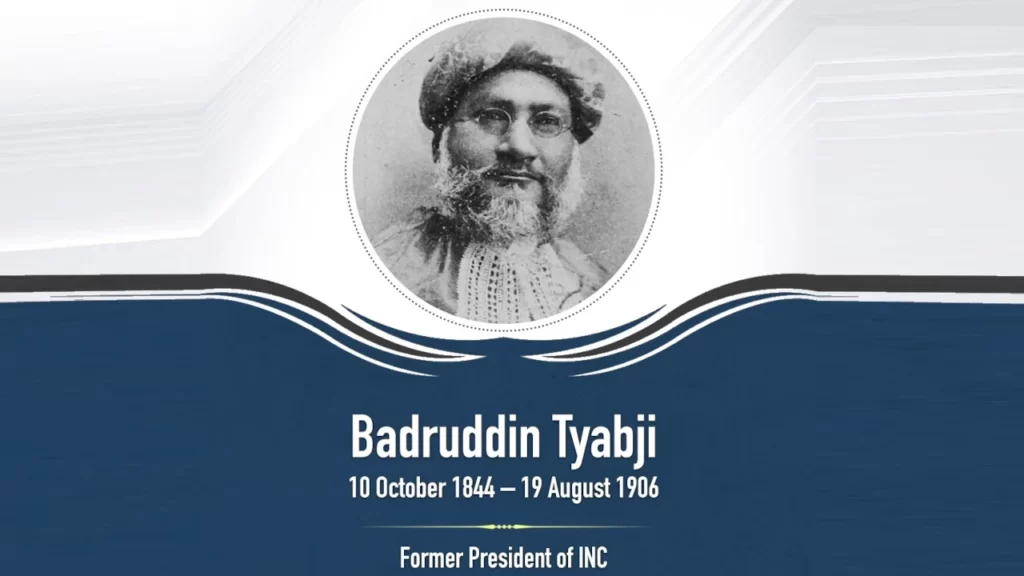I know you’ve been pondering about who held the prestigious position of being the first Muslim President of the Indian National Congress. It’s a captivating historical journey, and I’m here to unravel the story for you. ????
Badruddin Tyabji
In the annals of Indian history, Badruddin Tyabji’s name stands tall as the trailblazer who became the first Muslim President of the Indian National Congress. ????
???? Context Matters: Picture this – it was the year 1887, and the Indian National Congress was still in its formative years. The nation was simmering with a desire for self-governance, and it was in this climate that Badruddin Tyabji assumed this historic role.

Badruddin Tyabji hailed from a distinguished background. He was a barrister, known for his profound legal acumen. His presidency of the Indian National Congress in 1887 was a significant step towards communal harmony and unity. It sent a powerful message that the Congress was an inclusive platform for all communities in India.
Badruddin Tyabji’s presidency exemplified the Congress’s commitment to being a platform that welcomed leaders from diverse backgrounds. This inclusivity would continue to be a hallmark of the Indian National Congress in the years to come.
Quick Tips: If you want to delve deeper into Badruddin Tyabji’s life and contributions, explore books and articles dedicated to his legacy. It’s a treasure trove of insights into the freedom struggle. One such book is: Badruddin Tyabji (National biography): by Laeeq Futehally
Why It Matters Today
The legacy of Badruddin Tyabji’s presidency remains relevant in today’s India. It reminds us of the inclusive and diverse spirit that our nation was built upon. In an era where unity in diversity is celebrated, his story is a powerful testament to the strength of our pluralistic society. ????????
???? Key Takeaways:
- Badruddin Tyabji was the first Muslim President of the Indian National Congress in 1887.
- His presidency symbolized the Congress’s commitment to inclusivity and unity.
- His legacy underscores the enduring values of unity in diversity in modern India.
As you reflect on this piece of history, consider how it resonates with the India we know today. Feel free to share your thoughts or ask questions about this remarkable journey in the comments below.
Let’s continue the conversation! ????????
